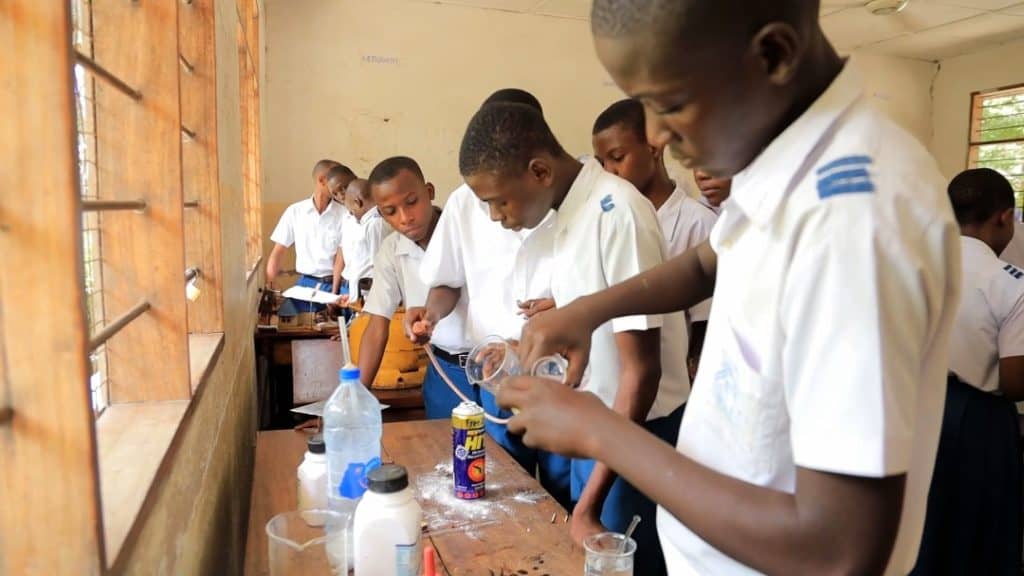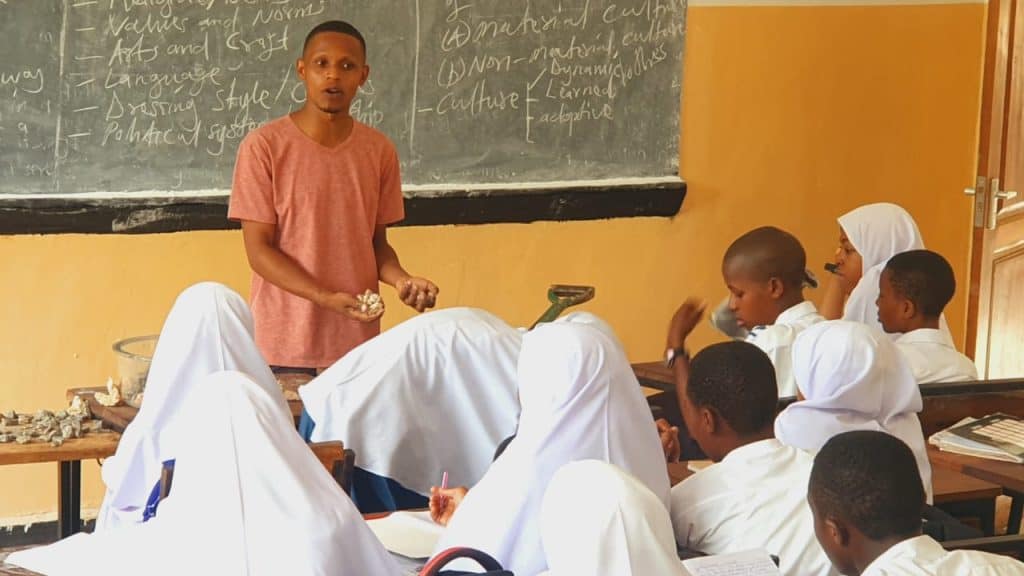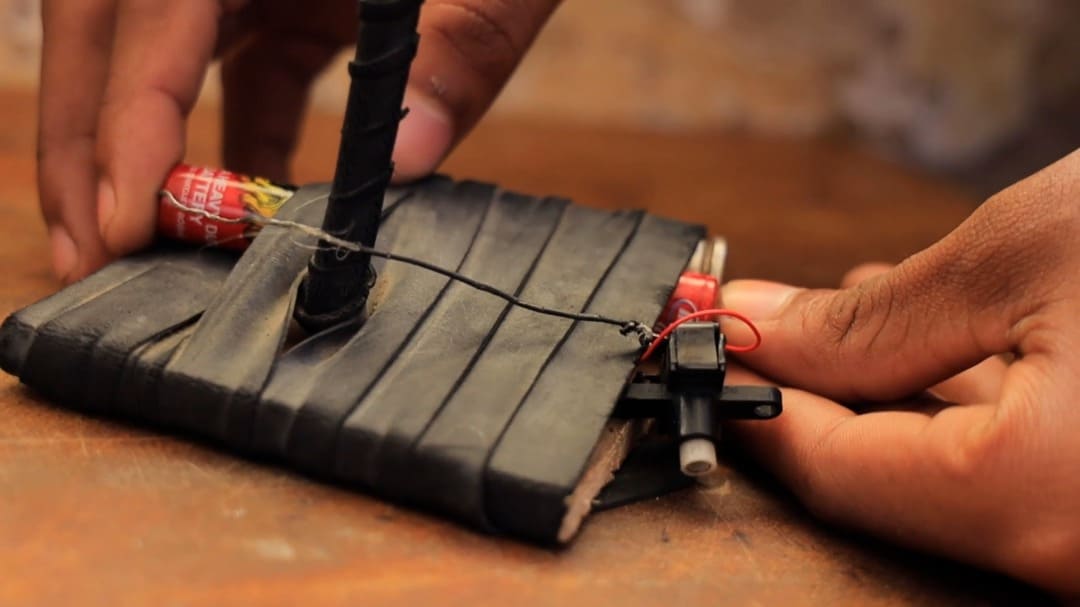“the industrial class has allowed my students to develop critical thinking and creativity skills and they have come up with many ideas and inventions”
Emmanuel Kivatiro, teacher, Mbande Secondary School
Mbande Secondary School in Dar Es Salaam provides education to over 3000 children. With just 73 teachers, it is crucial that the school finds innovative ways to engage its learners and ensure that, despite the large class sizes, teachers are able to use their time effectively and inspire students to achieve their full potential.
As such, the school has embraced the Human-Centred Design (HCD) process through its participation in the Schools2030 programme. Emmanuel Kivatiro, a science teacher at the school, has recently been trying out a new approach to his teaching which aims to build confidence, critical thinking and creativity in his students – an innovation he calls the Industrial Class. It was thanks to his journey with HCD that Emmanuel was able to tap into his own creativity to develop the class, as he was given the space to experiment with his ideas for improved holistic outcomes for his students.
“I believe in practical learning” says Emmanuel, who has taught science subjects to learners between the ages of 13 to 17 since 2016 and has a deep passion for helping his community through education. It is because of this passion that he determined to address some of the challenges he saw preventing his students’ educational advancement and improved wellbeing – namely a lack of critical thinking and creativity, a lack of confidence and as a result, poor class participation.

Having identified where he thought the problems were, he worked alongside fellow teachers through the HCD process to develop a better understanding of the gaps or barriers, and interviewed his students and their parents to engage their ideas on what practical measures could address these issues. Through these practical HCD sessions and activities organised by the Schools2030 team, he became increasingly comfortable with the approach, exploring the challenge and testing different learning ideas. He spent some weeks brainstorming a variety of options to see which might be the most effective.
“My favourite part of HCD is exploring and testing. As a science teacher I like to research and conduct different experiments and analyse the different results. The HCD approach increased my curiosity in researching and testing,” Emmanuel reflected on his experience.
Emmanuel eventually came up with the idea of the Industrial class, which promotes learning by doing, stimulating student creativity and allowing them to create different inventions based on the topics they have learned in the class. Throughout the initial prototyping phase, Emmanuel had frequent discussions with fellow Form Two teachers, including Bakari Mminge and Violeth Semwaiko, who also worked with Schools2030 and took part in HCD workshops. They have provided ongoing advice and helped him to refine the Industrial Class idea.

Through the classes, the students became far more engaged with their lessons, and improved their ability to think critically and problem-solve when creating different objects and small machines. The students were encouraged to create products which could be used in real life like clothes, musical instruments, model ships, and ATM machines. The fact that they could freely direct their energies into whatever products inspired them made them far more engaged with the lessons as a whole. This, in turn, has given them a practical understanding of the application of scientific principles, as well as the confidence that they too could one day become inventors and designers. Emmanuel was pleased to share the improvements to student learning that he has seen so far, commenting: “the industrial class has brought changes to my students as they all have developed critical thinking and creativity skills and have come up with many ideas/inventions.”
The proof of the idea’s efficacy is reflected in the evaluation data that has been collected since the Industrial classes began – a whopping 96% of students have said that they now love science subjects, and feel confident they can answer questions in class and use their talents in making different products. These classes make clear that most students learn best in practical, hands-on ways, that engage their curiosity from the start, as well as when they are self-directed. The classes are valuable not because they show the students what to think, but something far more important – how to think.
